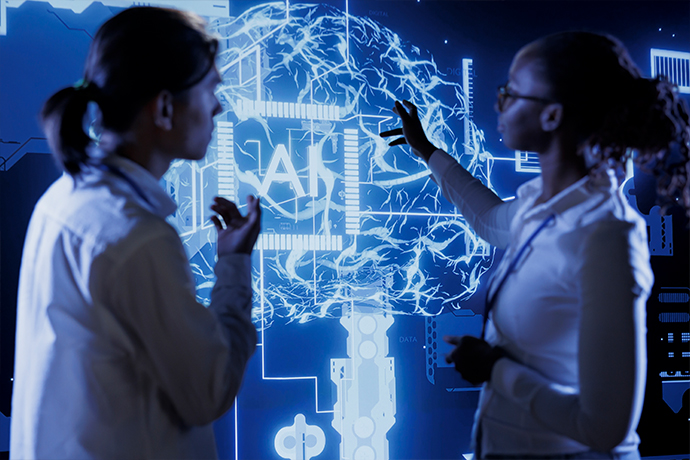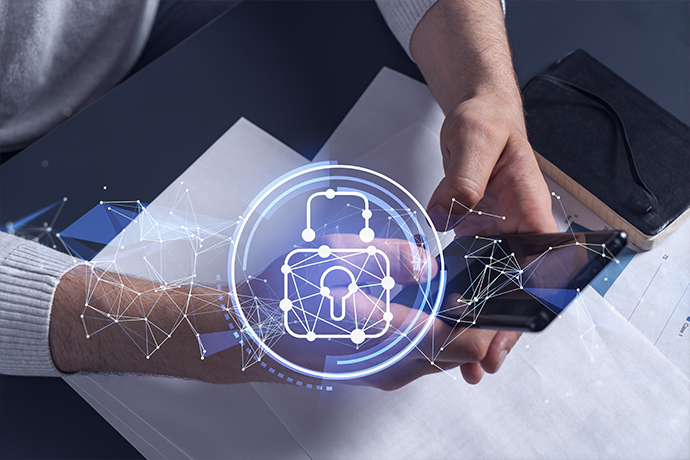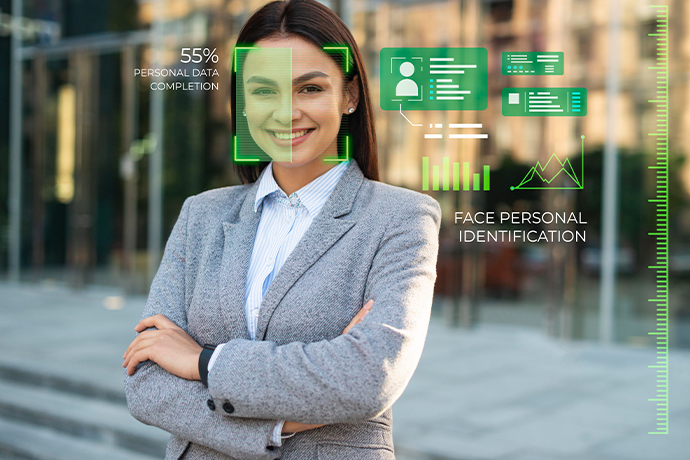 SPEAKERS
SPEAKERS
Learn how AI in human resources transforms the way you hire, manage, and develop talent through efficiency, precision, and engagement for more productivity from your workforce.

Artificial intelligence is changing the dimension of human resources and restructuring companies' ways of hiring, managing, and developing talents. The future will tell when AI is going to be applied for the organization of processes concerning recruitment, finding the best candidates with an unexcelled acuity of diagnosis, or even predicting employee performance or retentivity. AI in HR is not just a trend; it reshapes the very foundation of human resources: making processes more efficient, unbiased, and strategic. It's what will free HR professionals to do what matters most: build a productive, happy, and engaged workforce. How AI will have a deep influence on HR functions in its promises is; the following discussion of what the future of work is going to be.
AI in HR does more than transform workforce management and development; it makes them efficient and effective. This will be the power of artificial intelligence, which will help HR professionals dig through mountains of information about each employee to accurately forecast how the workforce will change over time and understand who will require additional training in that area. This could also involve filtering performance data to learn for whom specific training would really pay dividends, in order to ensure that development is relevant and useful. This amount of customization enables one to increase employee skill sets and also increments the overall productivity of the organizational output.
Generative AI in HR has a major role in talent development by developing personalized learning modules and/or refresher training programs. Imagine AI-driven platforms that generate, based on an individual's skills, goals, and performance metrics, personalized career development plans. These AI systems are constantly evolving and with regard to the relevant industry trends and needs of organizations, updating relevant training content. This keeps your workforce competitive and prepared to address future requirements. Other positive effects of AI in HR include increased employee engagement since workers feel valued by the way custom-made development plans are reserved for them.
AI-driven workforce management tools automate administrative tasks and allow HR professionals to focus more on the strategic levels of initiatives. Artificial intelligence in human resource management can be utilized for things like scheduling, attendance tracking, and performance reviews. This way, automation will reduce the administrative load on HR teams while reducing human errors. More than that, AI gives real-time insight into the trends of the workforce and allows the development of data-driven decisions among human resource professionals. Integrate AI into HR to drive a more vibrant and engaging workplace culture characterized by constant learning and development.
Why is human resources important? AI in HR brings many benefits to enhance efficiency and bring better results in human resource management. One major benefit is automating frequent tasks. Artificial intelligence in HR will help you automate processes like resume screening, interview scheduling, and the maintenance of employee records. This will not only save you time; it will also reduce the chances of a human-made error. This frees HR professionals to do more strategic work, like talent development and employee engagement, resulting in a more productive workforce that is equally satisfied.
Secondly, AI capabilities in human resources offer deep data analytics, which gives a better, deeper understanding of employee performance and organizational trends. Using volumes of data, you can use AI to identify patterns and make better predictions of the future. For instance, AI can help you know which employee is likely to quit and why, so you can take remedial action for better retention. Moreover, it would enhance the top decision-making processes by bringing in data-driven insights on effective strategies for hiring, development, and training. You get effective, informed human resource practice in that way, and that builds a high and strong organization.

Generative AI has the potential to transform the recruitment process. Let's start by streamlining the hiring process and making it efficient. Imagine AI working in HR to draft the job description, screen out resumes, and even conduct the first round of interviews. AI algorithms can process volumes of data to find the best fit amidst the prospective application pool on the basis of their qualifications, experience, and cultural fit. It ensures top-notch talent attraction with less time and effort put in, which was otherwise used traditionally. Have you thought about how much easier it would be to seek the right one without having to go through n pages of applications?
Moreover, generative AI optimizes the candidate experience as a determinant of a positive employer brand. Through the risk of more personalized interactions and timely updates, AI-driven systems will be able to keep candidates engaged and up-to-date in the flow of the hiring process. Many employee engagement speakers insist that an uninterrupted, smooth, and positive candidate experience is the pathway to a strong employer brand. Why is human resources important in this? Such a seamless, efficient recruitment process is not only going to yield better talent but also pave the way for their future engagement and satisfaction within your institution. This puts the junction in a place where generative AI can really change the way you attract, assess, and hire new employees and set you up to drive organizational success with a stronger workforce.
AI in human resources dramatically raises the level of employee engagement by providing them with a personalized experience and feedback in real-time. Now, imagine an AI system that occasionally checks up on employees regarding satisfaction, problems, if any, and assistance required. Such AI-driven interactions will infuse a more responsive and supportive environment into the workplace. This simply means that workers keep seeing a more personal approach accorded to their growth and well-being, breeding higher levels of engagement and loyalty in return.
On the other hand, AI is going to streamline the lines of communication and teamwork within your organization. AI-driven tools can enable more effective information sharing, project management, and team coordination. For instance, AI can auto-match employees with mentors or project teams that align best with their skills and interests. It improves not only productivity in performance but a sense of community and a feeling of belonging as well. When empowered by AI in human resources, you have an environment where people feel valued and heard; hence, they want to bring out their best efforts for job satisfaction and overall success.
AI in human resources is no longer a concept of the future; it's a transformative force reshaping how organizations work and succeed. From making a difference in talent acquisition through generative AI to employee engagement by way of bespoke experiences, AI brings a lot of never-known efficiency, precision, and insight into HR practices. By integrating AI, you will be building a more vibrant, responsive, and supportive work environment that drives the growth, satisfaction, and loyalty of employees. In continuing to integrate AI into human resources, we are presented with the ability to make strategic, data-driven decisions that drive organizational success. Are you ready to take the leap into the future of human resources with AI and change your workplace into an innovation and excellence hub? Now the journey begins.
